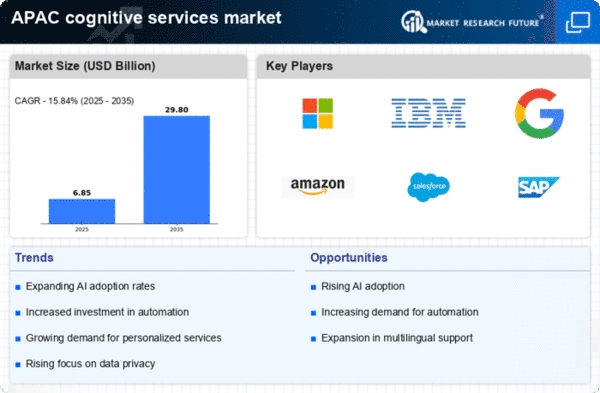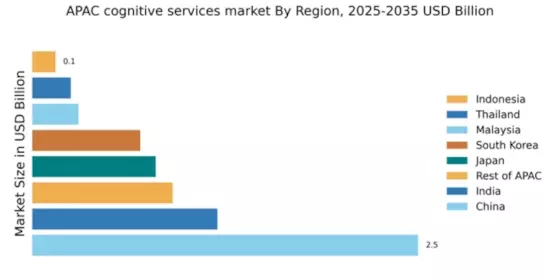India : Rapid Growth and Adoption Trends
Cities like Bengaluru, Hyderabad, and Pune are pivotal in this growth, hosting numerous tech companies and startups. The competitive landscape features major players like Microsoft and IBM, alongside local startups. The business environment is vibrant, with a focus on sectors such as e-commerce, healthcare, and education, driving the adoption of cognitive services.
Japan : AI Integration in Traditional Industries
Tokyo and Osaka are key markets, with a competitive landscape featuring global giants like Google and local firms. The business environment is marked by a blend of traditional industries and tech startups, particularly in manufacturing and robotics, where cognitive services are increasingly applied to enhance efficiency and productivity.
South Korea : Strong Government Support and Investment
Seoul is the primary market, hosting major players like Samsung and LG, alongside international firms such as IBM. The competitive landscape is dynamic, with a focus on integrating AI into existing industries. The business environment is favorable, supported by a highly educated workforce and a strong emphasis on R&D, particularly in smart manufacturing and fintech.
Malaysia : Strategic Initiatives and Investments
Kuala Lumpur and Penang are key markets, with a competitive landscape featuring both local and international players. Companies like Microsoft and Alibaba are establishing a presence, while local startups are emerging in the AI space. The business environment is evolving, with a focus on sectors such as e-commerce, finance, and healthcare, where cognitive services are increasingly adopted.
Thailand : Government Initiatives Fueling Growth
Bangkok is the primary market, with a competitive landscape featuring both local firms and international players like Google and IBM. The business environment is becoming more favorable, with a focus on integrating AI into traditional industries. The tourism sector, in particular, is leveraging cognitive services to enhance customer experiences and operational efficiency.
Indonesia : Growth Driven by Digital Transformation
Jakarta is the key market, with a competitive landscape featuring both local startups and international players like Amazon and Microsoft. The business environment is evolving, with a focus on sectors such as retail and finance, where cognitive services are being increasingly adopted to enhance customer engagement and operational efficiency.
Rest of APAC : Varied Market Dynamics and Growth
Key markets include Singapore, Vietnam, and the Philippines, each with unique competitive landscapes. Major players like Oracle and SAP are establishing a presence, while local firms are innovating in sectors such as logistics and healthcare. The business environment is characterized by a blend of challenges and opportunities, with a focus on enhancing digital capabilities across industries.

















